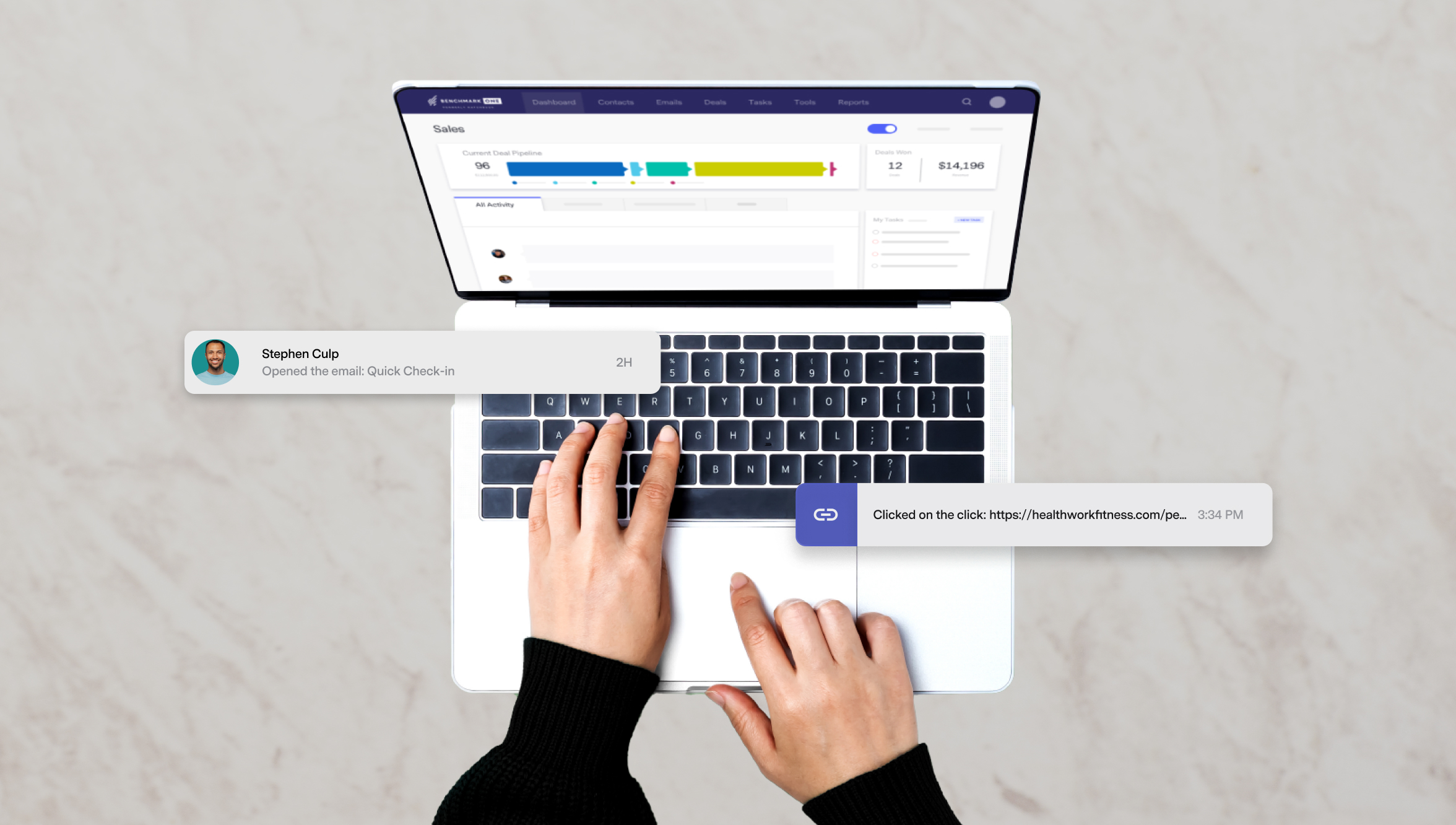
B2B marketing is always evolving, and 2022 is no different. If you want your brand to thrive in the modern market – and beyond 2022 – you need to know what marketing trends to consider and adopt for maximum effect.
When leveraged properly, the below eight marketing trends can help your organization earn more revenue, convert more customers, and dominate your market niche better than ever.
The (Continued) Rise of Content Marketing Strategies
Content marketing has grown more popular over the last few years, but it’s likely to continue as a critical marketing focus for the foreseeable future. Why?
Simply put, content marketing is of chief importance to:
- Help boost brand awareness among your target audience. When you put out great content, your target consumers naturally see your brand as an authoritative and educational source in its niche.
- Drive sales or conversions. Good content marketing can also drive website visitors to your product pages and encourage them to buy your products.
- Improve brand reputation. The right content marketing strategy can attract quality leads and help you set trends in the industry. This is a form of market dominance you want to cultivate, no matter your niche or target audience.
Good content marketing relies on posting things like blog posts, guides, educational newsletters, and even YouTube videos. Practically every modern business has a content marketing strategy these days, and you’ll need to make one of your own work if you want to master B2B marketing.
Improved Focus on Personalization
Personalization is also highly important for modern marketing, even when advertising to other businesses. Many organizations make the mistake of thinking that personalization only applies when advertising to end-users.
That’s not the case. Personalization also applies to B2B marketing. Some of the best ways to implement personalization in your B2B marketing include using recipient names in marketing emails and newsletters and focusing on clients’ pain points rather than your brand’s selling points.
Each of these techniques shows that you pay attention to each client individually rather than considering them cogs in your revenue machine.
An improved focus on personalization is also more achievable than ever, thanks to modern marketing tools. Customer relationship and lead management tools allow B2B businesses to market more directly to specific clients, build long-term and profitable relationships for all parties, and always have key information on hand to market effectively to potential leads.
More Marketing Automation
Naturally, automation – partially driven by AI and machine learning technology – is also of chief importance for modern B2B marketing.
Marketing automation streamlines many marketing tasks and a lot of busywork. For example, email automation tools, like Benchmark Email, can regularly schedule email campaigns at specific times. That way, someone doesn’t have to send each individual email to your leads and customers by hand.
The advantage? Your marketing team and other workers can spend their time on critical tasks that can’t be automated. It’s a major benefit you shouldn’t discount in terms of the man hours it will save you.
On top of that, marketing automation allows you to practice your B2B marketing campaign more consistently. Consistency is key when marketing online, especially since it provides advantages for your SEO or search engine optimization efforts. The more consistently you post your marketing materials, the higher you can rank for your target keywords.
Optimized Marketing Channels + Sites
It’s also a highly advantageous strategy to optimize all your marketing channels in addition to your online sites. More specifically, you should optimize your website so it:
- Loads more quickly, particularly on mobile devices. Remember, more than half of all internet traffic comes from mobile devices, including your B2B clients. That means your website needs to load very fast, no matter how many pages it has.
- Is easy to navigate through. Nothing turns away potential customers more quickly than a poorly organized website that’s impossible to navigate intuitively. Your website should be as bare-bones as possible while retaining its aesthetic improvements and functionality.
On top of that, you need to optimize your marketing channels, so they are:
- As highly efficient at converting leads into customers as possible. For example, you might use A/B testing to determine whether one ad or email newsletter or another is better at driving conversions or website visits.
- Are cost-effective. The last thing you want to do is waste time or your marketing budget on inefficient marketing channels.
To follow this B2B marketing trend, you’ll need to analyze marketing and advertising data carefully. The more data you analyze, the better you can optimize and improve your marketing efforts.
Account-Based Marketing
Account-based marketing is also majorly important in the modern marketing era. Also called ABM, account-based marketing focuses on developing exclusive or personalized marketing strategies for specific accounts in your client list.
This marketing trend is more important for businesses or brands that rely on a few major clients or those that need to retain the clients over the long term. But it’s still an important trend to keep in mind, particularly if your enterprise is one of those businesses and most of your revenue comes from a handful of clients.
AI and Machine Learning Become More Crucial
Of course, AI and machine learning will become more critical in B2B and other marketing industries. These tools:
- Help you gather and organize more data than ever
- Allow you to analyze important data so you can gain new market insights
- Help you personalize marketing materials to distinct customers and client accounts, etc.
Fortunately, many of the best marketing tools already have AI and machine learning functions or algorithms baked into their software programs. In fact, AI and machine learning are practically ubiquitous in the marketing sphere; we expect this trend to become more concrete as time goes on.
Speaking of, Benchmark Email just released an AI powered suite of tools, which help users increase their deliverability and create engaging, personalized email content.
Increased Reliance on Influencer Marketing
Influencer marketing isn’t just for end-user marketing, either. In many cases, it can also be used for B2B marketing. Partnering with the right influencers on platforms like Instagram and TikTok can do wonders for your lead generation and conversion rates.
The right influencers can:
- Drive more sales
- Lead to greater adoption rates for your software or services
- Help build your brand’s reputation and authority in its niche
More Payment Options
Lastly, 2022 and beyond may bring another marketing trend for B2B businesses: an increased focus on providing extra payment options. Secure payment gateways may soon allow B2B clients to pay using Bitcoin, other cryptocurrencies, and other forms of digital payments. After deciding to accept crypto for your products or services, make sure you set up a high-quality crypto wallet that allows you to receive and store crypto payments safely.
New payment options are advantageous for B2B enterprises as they can expand their clientele to a wider range of customers worldwide. However, growing your customer base alone will not result in revenue in B2B. Therefore, it would be best to control your customer churn rate with customer success software.
Conclusion
Pursuing and adopting the above eight B2B marketing trends can help your business succeed in ways you wouldn’t have otherwise thought possible. Mastering marketing will help you get more clients, earn more revenue, and stabilize your business financially for the years to come.
The best news? You can start adopting these B2B marketing trends right away.
Author Bio
Lee Li is a project manager and B2B copywriter from ShenZhen, China, and is currently based out of Singapore. She has a decade of experience in the Chinese fintech startup space as a PM for TaoBao, MeitTuan, and DouYin (now TikTok).






